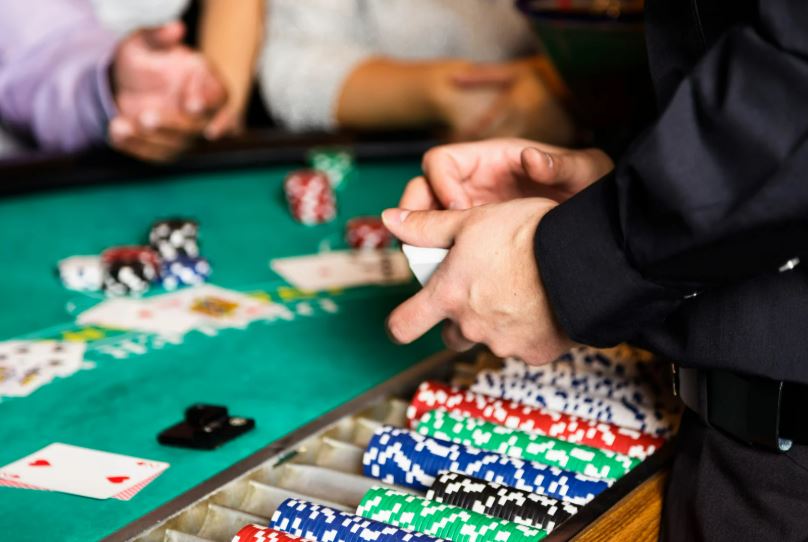
You may be wondering whether the number of players at the blackjack table changes anything in terms of outcomes. While it might seem like a crowded table could shift the dynamic, the reality depends on a few key elements.
In this article, we’ll explore whether playing with more or fewer people can influence the overall experience—and what effect, if any, it has on the numbers behind the game.
Check it out below.
Do Blackjack Odds Change With The Number Of Players?
At most blackjack tables, up to 7 people can play at once. Some players think that choosing a particular seat at the table might somehow improve their experience or outcomes. For instance, some positions are more talked about than others, often due to the order of play or visibility of other cards.
Here are three seats that are commonly referenced:
- First base: This is the seat directly to the dealer’s left. It’s the first position to receive cards and act each round.
- Shortstop: Found in the middle of the table, this seat gives a balanced view of the action.
- Third base: Positioned farthest right of the dealer, this player acts last. Because of this, some believe this spot offers more information before making decisions.
While these seats are often discussed in terms of play style or strategy, they don’t change the underlying odds. The same principle applies to the number of people seated at the table. Whether it’s full or nearly empty, the odds do not shift based on how many are playing at any given time.
To clarify, whether 3 or 7 players are present, the odds stay the same. The house retains a statistical advantage of around 2%, though effectively implementing optimal basic strategy can reduce this figure significantly—potentially to 0.5%.
Is It Better To Have More Or Less People At A Blackjack Table?
As mentioned earlier, the number of people around the table doesn’t influence the actual odds, but it can shape the environment in different ways. Depending on your preferences, you might gravitate toward a quieter  table or a more social one.
table or a more social one.
For example, a table with fewer participants usually moves faster. If you prefer a quicker pace and minimal distractions, this kind of setup might make it easier to stay engaged and think clearly before acting.
This can also be helpful for those still getting familiar with how blackjack flows. With fewer people, the game progresses more rapidly, allowing for more hands within the same time frame.
On the other hand, a table with more players changes the tempo. With more time between turns, there’s space to consider your next move more deliberately. Some people enjoy this slower rhythm, especially when it comes with a more engaging or energetic group setting. Of course, one trade-off is that fewer hands may be played overall.
Do Bad Blackjack Players Affect Other Players Chances Of Winning?
During a session, you might find yourself alongside someone who makes unexpected or less-than-ideal decisions. It’s sometimes suggested that such choices—like hitting when it seems better to stand—can influence what happens next.
This idea tends to come up in discussions about card counting, where more precise tracking might make others’ decisions appear more impactful. In reality, though, these effects are minor and generally don’t shift the odds in a meaningful way.
Over time, every game involves a mix of decisions—some better, some worse. Regardless of how someone else plays, each hand still unfolds independently. The overall odds remain consistent, even if individual outcomes vary moment to moment.
*All values (Bet Levels, Maximum Wins etc.) mentioned in relation to this game are subject to change at any time.
**The information provided in this blog is intended for educational purposes and should not be construed as betting advice or a guarantee of success. Always gamble responsibly.
